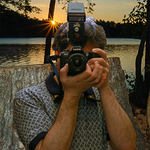 Adobe Community
Adobe Community
- Home
- Photoshop ecosystem
- Discussions
- JPEG 2000 JPF and JP2 what is the difference
- JPEG 2000 JPF and JP2 what is the difference
JPEG 2000 JPF and JP2 what is the difference
Copy link to clipboard
Copied
I have a job with a JPEG 2000 workflow. Files provided have the extension .jp2 however when saving in PC CC 2019 it defaults to a .jpf file with no option for .jp2. Renaming file after save does not seem to work. My questions are,
Is there any difference between .jpf and jp2?
What is the tile size in the save window referring to?
Hoping someone can shed some light on this google searches have drawn a blank!
Thanks in advance
Explore related tutorials & articles
Copy link to clipboard
Copied
Long time since I looked at this but I seem to remember that JP2 is a limited JPEG 2000 format; any of them are also a JPX. JPX is the proper extension of full JPEG 2000. I don’t know what JPF is supposed to mean. Wikipedia acknowledges JPF but only talks about the meaning of JPX and JP2.
Copy link to clipboard
Copied
Have you tried to change the file extension from .jpf to .jp2 at the save dialog?
Copy link to clipboard
Copied
I know this is a bit older, but I thought maybe I could shed some light on this. JP2 is older, somewhat limited. JPF is an extended version of this file type. So is JPX. JPX contains several pieces of "metadata" or data about the data in the file that many later applications can use to help in viewing the files.
JPEG 2000 was a file type created by the JAVA PROGRAMING EXERTS GROUP and defined in late 1999, but accepted as a standard in early 2000. The file type was initially meant to hold JPEG compressed information with a few added features. However, it became apparent that the features were commonly used in small overlay frames called "TILES" which were usually layered on top of, overlapping or side by side to create larger images on the screen. The compression allowed the images to take up very little space, while the added features allowed them to be "TILED" onto the screen in many different ways. The added features for jp2 were simple: up to 16bit colorspace where the current JPEG had only 8, all the way down to 2 bit color space; transparency alpha, which could define an area of "Invisible", White, Black, or GREY that allowed an image to be placed on top of it so "Tiling" would show through any image under the tile when layered, and when viewed, would show the surrounding frame of the image in the chosen alpha or in the system defined alpha when transparent was used (usually black).
When 3D games were just beginning, TARGA was the primary format for the data, because it didn't lose quality as fast as jpeg compression. However, as processing became more accurate and jpeg compression algorithms were revised to retain more quality, and memory became less expensive, some games moved away from the TARGA format and cell shading to the JP2 and JPX formats, as they were faster, and utilized less memory, enabling the layering of images over mesh framework, at set sizes.
Think of the tile size as the canvas size. This is the area of the image that will be saved. If you try to save a large 8 megapixel image to a 256x256 canvas size, some of the image will be cropped. The tile size should define the entire frame of space the image will fit into. Common sizes for either dimension (Height or width) are 127, 128, 255, 256, and any higher multiples of these. They fit nicely into memory blocks and are easy on the machine and programming.
JPF is a more recent version of these file types. It is compatible with jp2, as it has the same features, with more added. JP2 added transparency to jpeg standards. JPX added some color modes. JPF adds a lot more.
As for saving in JP2, I will try to do this several ways and get back to you.
One of the primary uses of JP2 was for printing reapeated patterns on paper (like wrapping paper). It was used in borders for documents for a short time, then different apps took different pathways in creating their own formats. Some bulk wrapping paper outfits still use their old files though.
Copy link to clipboard
Copied
What Adobe does not realize is that many archival institutions rely on JP2 as an archival format. We do not want to use jpf and it doesn't work in our digital library systems without customization. We use JP2 to reduce storage needs and costs for very large archival images. We are continually trying to find ways to edit JP2s, like rotate, in other ways because Adobe has failed us with the assumption everyone wants JPF. They need to return the JP2 option and turn off JPF default.
Copy link to clipboard
Copied
Copy link to clipboard
Copied
No, Thank you. I will take a look.
--
Nicole H. Scalessa\
[Personal information removed by moderator.]
Copy link to clipboard
Copied
The standards body that created JPEG was not "java programmer e.g." but the Joint Photographic Experts Group
